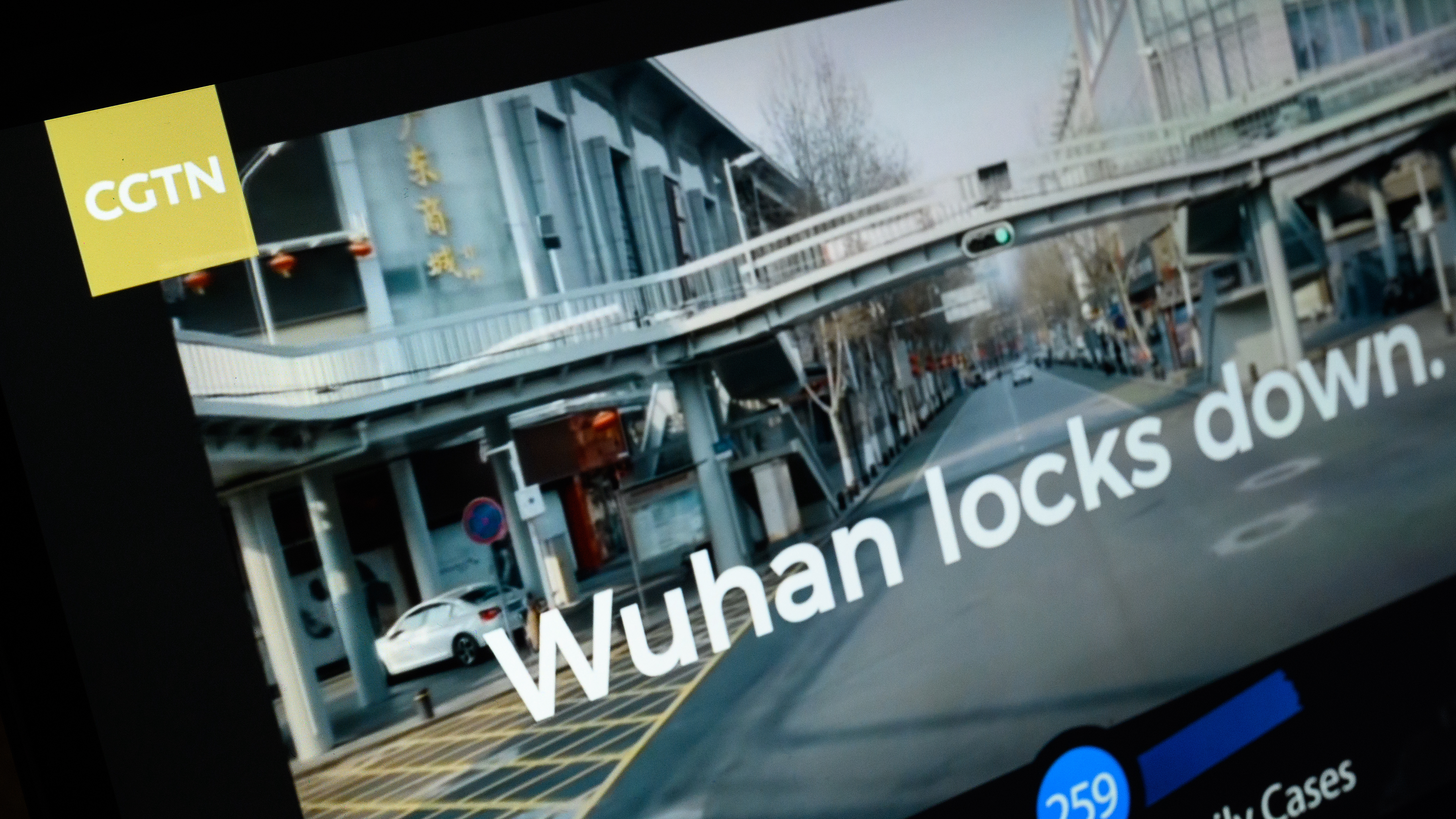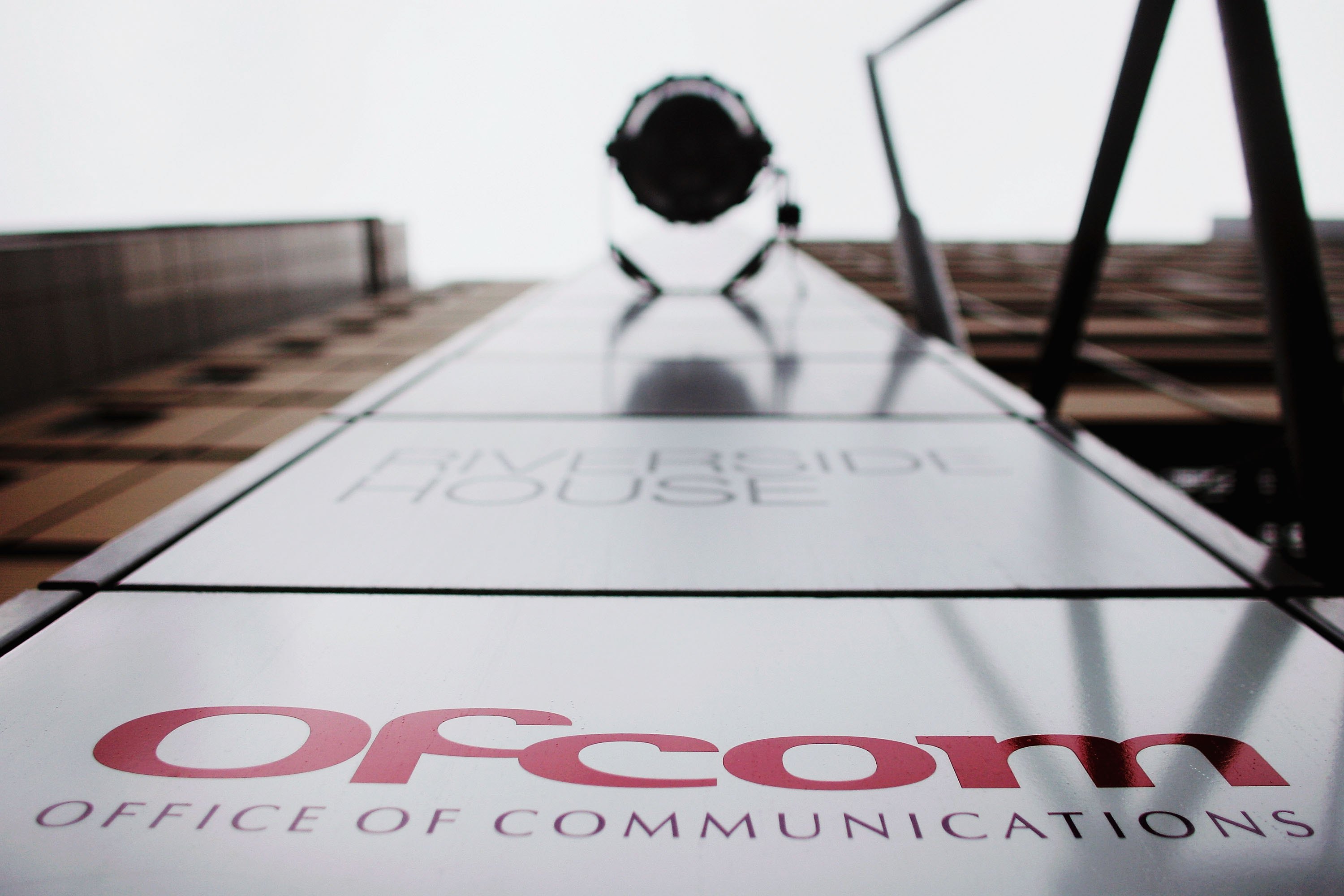
A scene from a programme on CGTN. /Getty
A scene from a programme on CGTN. /Getty
Editor's note: Jonathan Arnott is a former member of the European Parliament. The article reflects the author's opinions, and not necessarily the views of CGTN.
Jen Bricker is an inspirational figure. Growing up without legs, her attitude towards life was always that "can't is a four-letter word" to be treated in exactly the same way as all kinds of swear words which in the English language seem to often have four letters. The story of triumph over adversity and overcoming the most difficult of challenges is one which offers hope to many people struggling in their everyday life. That story, told on screen under the title "When can't is a four-letter word," won an Emmy award for CGTN. In other words, there is a level of quality from their productions that has long been recognized.
I was therefore surprised to read that the British regulator Ofcom has decided to remove CGTN's broadcasting rights in the United Kingdom. It turned out that they're unconcerned about the quality of programs, but rather about editorial control. Ofcom apparently claims they cannot establish that there isn't a chain link that eventually leads back from the UK television company to the Chinese government in Beijing.
I don't know about that. I cannot speak to the technicalities. I can speak only to what I've seen, and to my own perception of CGTN's editorial output. I watch and read the news from all political perspectives. Left-wing or right-wing, capitalist or communist, authoritarian or liberal, I want to develop a nuanced opinion on whichever topic I happen to be writing about. So yes I've watched CGTN, just as I've also watched CNN and Fox, France24 and RT, Sky and the BBC, precisely because I want to see the full spectrum of reporting on any issue.
There's a note at the top of this article. It explains that what I write represents my opinions, not the opinions of the outlet which happens to be publishing the article. My views may, or may not, accord with the views of CGTN on any given issue. That's because CGTN does publish content which it doesn't endorse, because it is interested in hearing both sides of the argument. My views also may, or may not, agree with the views of any other media outlet which I happen to be writing for at the time.

The OFCOM (Office of Communication) logo at its headquarters in London, England. /Getty
The OFCOM (Office of Communication) logo at its headquarters in London, England. /Getty
If there's something which I believe, which goes fundamentally against the editorial principles of the outlet which I happen to be writing for, then a bit of common sense tells me not to send the piece. For example I have serious concerns about the TV license fee, which requires any British household wishing to watch television to pay £157.50 (US$215) to the BBC even if they never watch the BBC. I would rather see the BBC part-privatized, sold to raise money for the nation, and the remaining "public interest" journalism such as local and regional radio being funded through general taxation. I'd have to be a complete fool, on the other hand, to go live on the BBC and argue on air using their platform that the BBC should be "defunded."
Before Brexit I took a similar attitude towards companies like Euronews, which is partly state-funded by the European Union. I didn't want British taxpayers' money funding a TV channel that promotes a particular political agenda. But, now that Brexit has happened, I no longer live in the European Union. Frankly, how it spends its money is none of my business – I no longer have any right to quibble about how Euronews is funded.
Frankly, my experience has been that CGTN provides a broader range of perspectives than it is often given credit for. The reason I was asked to write articles for CGTN in the first place was to provide some political balance: when Brexit was dominating the European political agenda, they had more pieces from those who were pro-Remain than pro-Brexit. By commissioning opinion pieces from a Brexit supporter, they were able to ensure that a full range of views were represented. My belief in the power of business and free trade has not proved to be a problem; articles along those lines have been published.
My Christian beliefs and values have never caused an issue, nor has my support for religious freedom in general. My belief in freedom of speech has not been a problem either: indeed, it is on that very basis that I have serious misgivings about the UK regulator's decision to ban CGTN television from its airwaves. It is ironic that those who shout in British politics the loudest about "freedom of speech" often lose that belief when it comes to views they disagree with. Anyone can defend free speech when they agree with the opinions expressed. That costs nothing.
When I've written opinion pieces for CGTN in the past, nobody has ever tried to twist my words or to force me to say anything which I did not believe in. If writing a piece would go against my values, I wouldn't write it. Crucially, there has never been any pressure on me to do so. I can only speak to my own experience, and that experience does not sit comfortably with Ofcom's decision.
(If you want to contribute and have specific expertise, please contact us at opinions@cgtn.com.)

